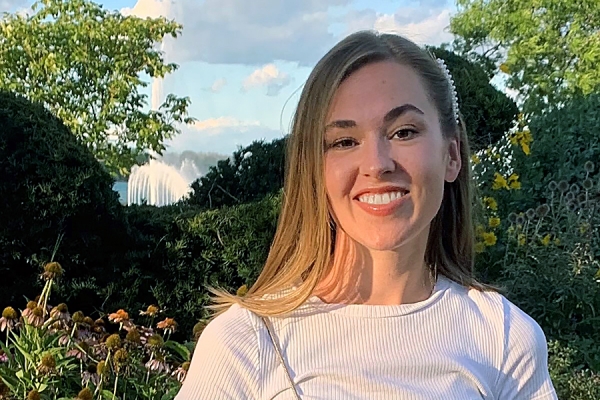 Aquatic telemetry should be widely used to manage fisheries, set climate policy, protect species, and drive other management objectives around the world, a group of experts say in a recently published article. Photo courtesy of Jordan Matley
Aquatic telemetry should be widely used to manage fisheries, set climate policy, protect species, and drive other management objectives around the world, a group of experts say in a recently published article. Photo courtesy of Jordan Matley
Using sound to track the movement of fish is a technique that should be used to better monitor ecosystems and set conservation policies globally, contends a UWindsor ecologist.
In an article published in the journal Trends in Ecology and Evolution (TREE), Aaron Fisk and co-authors note that while aquatic telemetry is widely used to track the movement of underwater animals, it’s not being used to its potential for “management-driven objectives” such as managing fisheries, setting climate policy, or protecting species.
“In addition to the need for more research with direct pertinence to management, aquatic telemetry research should prioritize ongoing efforts to create collaborative opportunities, establish long-term and ecosystem-based monitoring, and utilize technological advancements to bolster aquatic policy and ecological understanding worldwide,” the authors write.
Dr. Fisk, a professor in UWindsor’s School of the Environment and Great Lakes Institute for Environmental Research, collaborated on the article with 17 other researchers around the globe, including UWindsor alumna Natalie Klinard, a former Master’s student in Fisk’s lab, now a doctoral student at Dalhousie University in Halifax on a scholarship funded by the Natural Sciences and Engineering Council of Canada. The lead author, Jordan Matley, is a former post-doctoral fellow in Fisk’s lab now working as a professor of aquatic resources at St. Francis Xavier University in Nova Scotia.
“Movement ecology is a burgeoning field in science,” said Dr. Matley. “We were interested in knowing how well research objectives meet the management needs of aquatic animals. Ultimately, we wanted to identify where this type of research should be directed to facilitate greater understanding of the aquatic realm globally.”
Fisk, who has been using aquatic telemetry in his research for more than a decade, said he hopes the article starts a conversation on how the technology could be used more widely.
“The article demonstrates the impact aquatic telemetry is having on research and shows how we should share expertise around the globe,” he said. “We need to be supporting research in less developed parts of the world so they can do the kind of acoustic tracking that we do here in the Great Lakes and in the Arctic.”
The research article brought together many of the world’s leading experts in aquatic ecology.
Fisk, for example holds a Tier 1 Canada Research Chair, recognition of his expertise in the research area of Great Lakes ecosystems. Under the Canada Research Chairs program, the federal government provides funding of up to $295 million each year to a cadre of researchers with the goal of propelling the nation to the forefront of research and development globally.
Other researchers who contributed to the article come from Australia, Denmark, Japan, Norway, South Africa, Spain, and the United States.
—Sarah Sacheli




